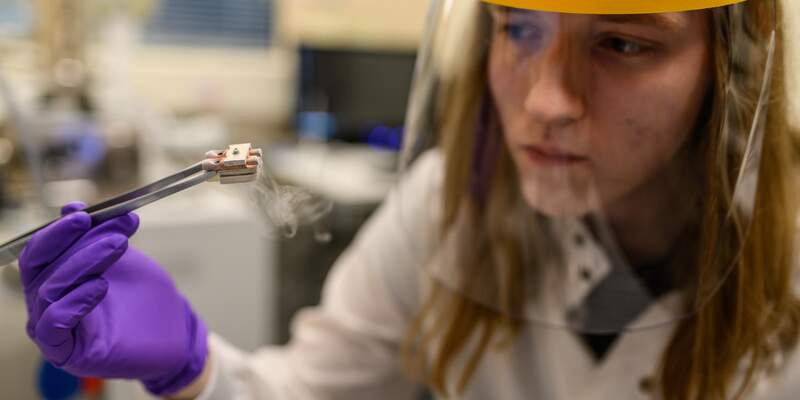
Year in industry
What is a year in industry?
A year in industry is a placement of nine to twelve months, usually undertaken after your second year, during which you'll gain experience in an industrial or research setting. We have excellent relationships with a wide variety of organisations offering year in industry opportunities, some of which are exclusive to the Department of Biology. Our students have had placements at organisations such as GSK, Kew Gardens, AstraZeneca, Francis Crick Institute, Sosei Heptares, Wild Planet Trust and UKRI.
When to apply
Our Biology Placements Coordinator will contact you towards the end of your first year, asking if you'd like to express an interest in doing a year in industry. You'll then have regular contact with them throughout your second year, learning more about the year in industry, identifying placement opportunities, making applications and attending interviews.
How we help you to find placements
As well as advertising a large number of placements, including exclusive opportunities, we offer extensive support and guidance on applications and interviews.
We cannot guarantee a placement as many of the placements we offer are competed for nationally. However, our Biology Placements Coordinator guides you through the process of finding and applying for a placement and our Careers and Placements team give you help and support with CV writing and preparation for interviews, which maximises your chances of finding a placement.
Students who are offered a placement receive support from the Department during their year away.
How much does it cost?
Generally students are paid a salary by the employer during their research placement and others can receive a York Futures scholarship to support unfunded positions. Students pay reduced fees to the University during a placement year.
Can you do a year in industry abroad?
Yes. We have a number of exclusive relationships with companies and organisations overseas. For example Novartis (California), Mayo Clinic (Florida), Garvan Institute (Sydney), P53 Lab (Singapore), EMBL (Grenoble), UCB (Brussels), Sandy Pines Wildlife Centre (Ontario). It is also possible to source your own overseas placement.
What support is available to students while they are completing their year in industry?
We have regular virtual drop-ins with students away from the Department. This means you have regular contact from your academic supervisor and our placement coordinator. You also get lots of support from your host and we are in touch with them to make sure everything is running smoothly.
Will everyone get a year in industry?
It’s a competitive process and inevitably some people will miss out. However, students with an open mind who try hard will usually succeed!
